The WORST episodes of The Universe
Every episode of The Universe ever, ranked from worst to best by thousands of votes from fans of the show. The worst episodes of The Universe!
Explores many scientific questions and topics about the universe (Big Bang, the Sun, the planets, black holes, other galaxies, astrobiology etc.) through latest CGI, data and interviews with scientists. From the planets to the stars and out to the edge of the unknown, history and science collide in a wondrous yet deadly adventure through space and time.
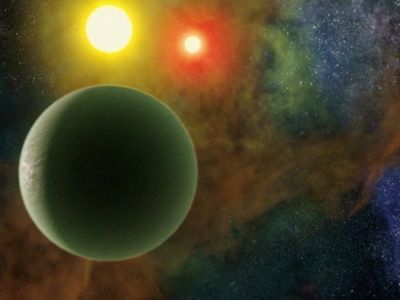
#1 - Alien Sounds
Season 7 - Episode 2 - Aired 5/6/2012
What does the Universe sound like? From the sweep of a pulsar, to the deafening roar of our boiling sun this episode explores the undiscovered soundscapes of the solar system, the galaxy, and the entire cosmos. And, is it true that in space nobody can hear you scream?!? Our scientists reveal that there are places in the Universe that prove this sci-fi statement wrong.
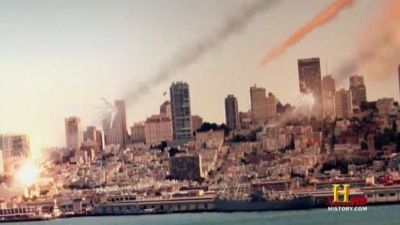
#2 - Asteroid Attack
Season 5 - Episode 6 - Aired 9/2/2010
A look at asteroids and the impact they have or had on life now and before. Also, what spacecrafts can tell us about them, what they can do to civilization, and the possibility of living on one.
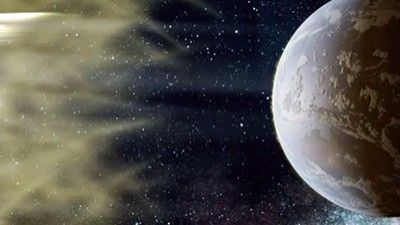
#3 - 10 Ways to Destroy the Earth
Season 4 - Episode 6 - Aired 9/22/2009
Experts cook up ways you could destroy the Earth, including swallowing it with a black hole, blowing it up with anti-matter, hurling it into the Sun, and switching off gravity.
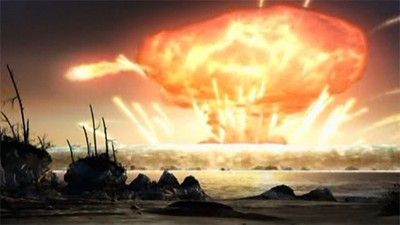
#4 - The End of the Earth: Deep Space Threats to our Planet
Season 1 - Episode 3 - Aired 6/12/2007
Asteroids, comets, gamma ray bursts and the sun all combine to make the Earth a dangerous place to live. NASA's top brass and other scientists are arming themselves with the latest technology to pre-empt an apocalyptic attack. Watch and investigate bizarre, and terrifying apocalyptic scenarios and the ways that scientists are racing against the clock to develop technology to defend our planet.
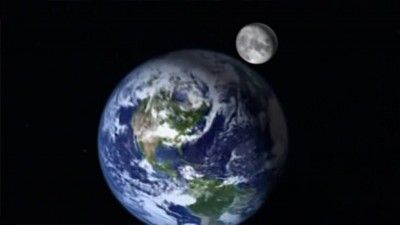
#5 - Spaceship Earth
Season 1 - Episode 6 - Aired 7/10/2007
Take a high performance ride through the formation of the third planet from the Sun, Earth... A survivor of one of the most violent "neighborhoods" in the Universe, learn how Earth was created and discover what creatures hold clues to how life began. What evil forces threaten the demise of Earth? Complex and controversial, this is the scientific detective story of all time.
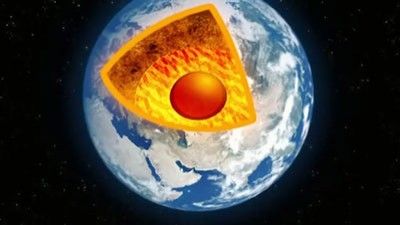
#6 - Liquid Universe
Season 4 - Episode 9 - Aired 10/20/2009
On alien planets, they rain from the sky as scalding iron. On distant moons, even at hundreds of degrees below zero, they slosh around in pristine lakes of methane. They can cover entire planets in miles-deep oceans of electrified hydrogen metal. Or erupt on alien worlds through miles-high geysers. They churn in the interiors of dead stars and even our own planet. They're so rare in the universe, they almost don't exist, but these are the magical liquids of our Liquid Universe.
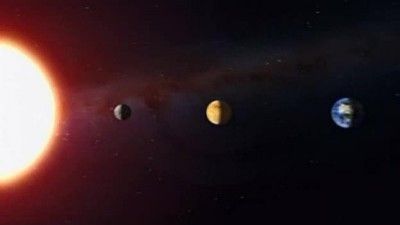
#7 - The Inner Planets: Mercury & Venus
Season 1 - Episode 7 - Aired 7/17/2007
Examining Mercury and Venus. Included: exploring how the damages they've suffered from cosmic collisions and acid rain may serve as a warning for Earth.
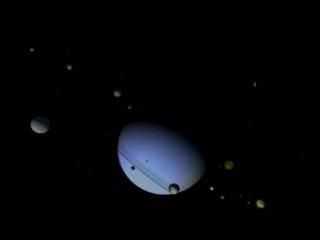
#8 - The Outer Planets
Season 1 - Episode 11 - Aired 8/14/2007
This episode details outer lying planets and their moons. Included will be Uranus, Neptune, and Pluto. Using CGI, we will also see what alien life might look like on other worlds.
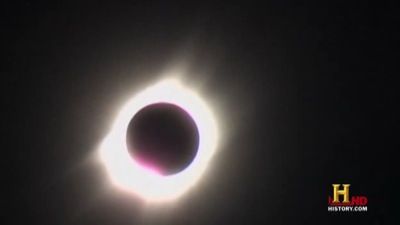
#9 - Total Eclipse
Season 5 - Episode 7 - Aired 9/16/2010
A look at the movements of the Earth, the sun and the moon during solar and lunar eclipses; how humans, if alone in the universe, may be the only intelligent creatures to witness these events; and how astronomers discover planets in other star systems that partially eclipse their stars.
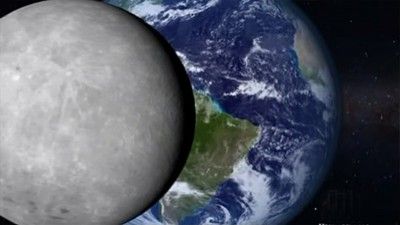
#10 - The Moon
Season 1 - Episode 5 - Aired 6/26/2007
The moon has comforted man for thousands of years. It's been everything from a god to a compass, and the only cosmic body human beings have ever visited. NASA is planning to build a permanent outpost there. Discover how the moon came to be--if you don't already know, you will be astounded.
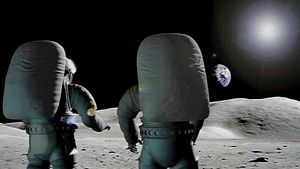
#11 - Colonizing Space
Season 2 - Episode 13 - Aired 3/11/2008
Space colonization is no longer the fodder of sci-fi, it's becoming a reality. The efforts are underway to establish a colony on Mars, how they plan to grow food, recycle wastewater & introduce greenhouse gases to revive the Red Planet & make it habitable for us.
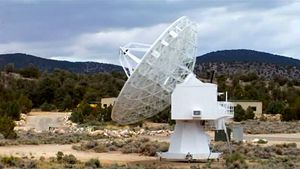
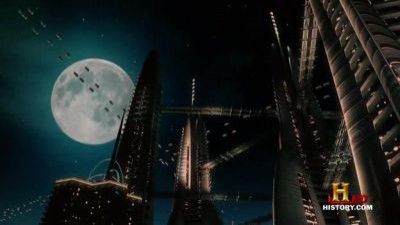
#13 - Science Fiction. Science Fact.
Season 4 - Episode 11 - Aired 11/3/2009
Warp speed, transporters, wormholes and lasers--they are all staples of science fiction books, movies, and TV shows. But the fantastic world of tomorrow is quickly becoming the futuristic world of today. While you may not be "beaming" to your next appointment any time soon, researchers are preparing for the first tests of a present-day "transporter." And while scientists have long mocked Hollywood's visions of warp speed and faster-than-light travel as prohibited by Einstein's laws, a new generation of physicists continues to rewrite the fundamental rules of the universe. Is there a way around the cosmic speed limit? Maybe... as long as you're prepared to survive a journey through the ultra-high energies of one of the most violent places in the cosmos--the heart of a twisting, swirling vortex that leads either to strange, new worlds... or certain death.
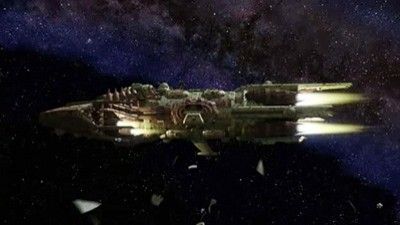
#14 - Space Wars
Season 4 - Episode 8 - Aired 10/6/2009
Outer space is already an essential part of America's ability to fight wars. Our military depends on satellites for many things, such as communications, reconnaissance and targeting information. But so far, no country has put weapons into space, although the U.S. and China have both shown they can shoot down satellites with ground-based missiles. If weapons do become a part of space, how will they work, how effective will they be, and what type of damage could they do? From ground-based lasers to telephone-pole sized rods hurtling from space at two miles per second to the far out weapons of the distant future, it's time to "lock and load" for Space Wars.
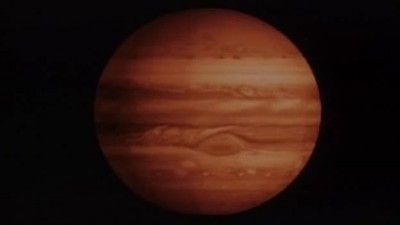
#15 - Jupiter: The Giant Planet
Season 1 - Episode 4 - Aired 6/19/2007
Jupiter poses many questions about our solar system. It is a powerful planet of gas whose flowing colors and spots are beautiful, but contain violent storms and jet streams. A mini solar system of over sixty moons rotate around Jupiter--a half billion miles from earth. Could one of these moons contain life under its icy crust?
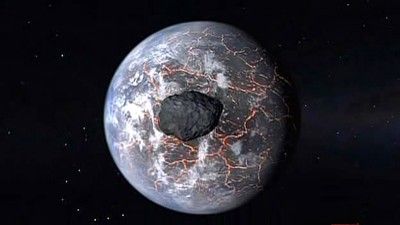
#16 - Gravity
Season 2 - Episode 17 - Aired 4/22/2008
Explore how science and humanity discovered, overcame and utilized gravity.
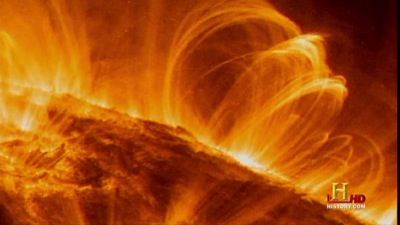
#17 - Magnetic Storm
Season 5 - Episode 3 - Aired 8/12/2010
A look at magnetic storms – "Solar Katrinas" created by the sun with the power of ten-thousand nuclear weapons that could cause global electrical blackouts, electronics malfunctions and communication disasters if one should hit the Earth.

#18 - Extreme Energy
Season 4 - Episode 12 - Aired 11/10/2009
Ours is a universe of energy, from powerful jets ejected from black holes to the raw nuclear fury of our Sun. But, the total amount of energy in the universe maintains perfect equilibrium--no more can be added or taken away. Because of this, there are enormous amounts of energy being transferred...electric, thermal, kinetic and magnetic energy are just a few that keep our universe balanced--and create awesome cosmic events and stellar displays.
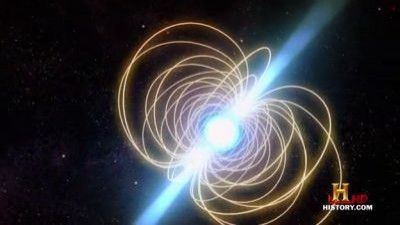
#19 - Pulsars & Quasars
Season 4 - Episode 10 - Aired 10/27/2009
They sort of sound like the same phenomenon, but Pulsars and Quasars are very different. Pulsars are tiny--only a few miles across--but they spin as fast as a kitchen blender and sweep the sky with beacons of radiation that make them appear to flash on and off. They have unbelievably strong magnetic fields, are more accurate than atomic clocks...and they can even tell aliens just where to find the Earth! Quasars are at the other end of the spectrum. Quasars are huge cores of galaxies with black holes that are called "monsters" and which spit lobes of radiating gas called "DRAGNs." Quasars are so far away, we see them as they were only in the distant past--meaning they existed only in the early universe, when they may have played a major role in the creation of the galaxies themselves.
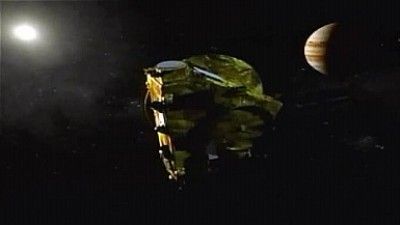
#20 - Alien Moons
Season 2 - Episode 5 - Aired 1/8/2008
Travel from the inner solar system to the Kuiper Belt and explore the moons surrounding the planets of the solar system. Many of these moons that were once unknown are now on the cutting edge of astronomical study.
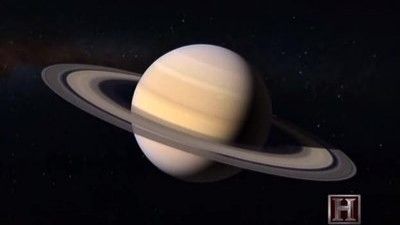
#21 - Saturn: Lord of the Rings
Season 1 - Episode 8 - Aired 7/24/2007
Are the rings of Saturn a real celestial phenomenon or merely a cosmic Illusion? Technology allows the experts to get closer to the furthest planet visible to the naked eye. Old questions are answered and new ones arise. Does Saturn hold the key to Earth's weather and will one of its moons supply us with all the oil we'll ever need?
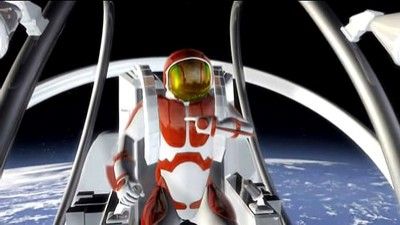
#22 - Edge of Space
Season 3 - Episode 11 - Aired 2/3/2009
The majority of space exploration has occurred in Low Earth Orbit, around 120 miles above sea level. For a cool $20 million, any person can take a ride on the International Space Station, around the 1,100 mile band around Earth. Commercial prospects for LEO are huge, there are big dangers lurking for anyone interested in traveling this way, such as radiation, , cosmic rays, and space debris numbering in the thousands threaten any spacecraft traveling in orbit. It's a new frontier and maybe the final frontier, and the possibilities are endless if you are willing to travel to the edge of space exploration.
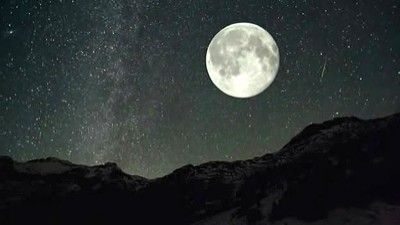
#23 - The Day the Moon Was Gone
Season 4 - Episode 2 - Aired 8/25/2009
Without the moon, Earth would be a very different and desolate place today--four hours of sunlight with pitch-black nights, steady 100-mph winds spawning giant hurricanes that last for months, and virtually no complex life forms, much less humans. Safe to say, we probably owe our very existence to the moon. But what if it suddenly disappeared?
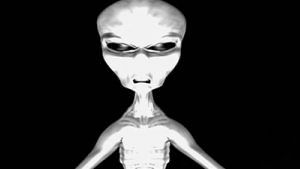
#24 - Astrobiology
Season 2 - Episode 7 - Aired 1/29/2008
Does life exist on other planets? Astrobiology is a visionary new science that searches for life in space by combining the disciplines of astronomy, biology and geology. How did life evolve on Earth? What will life look like on other planets? These and other pertinent questions will be answered by a diverse group of scientists.
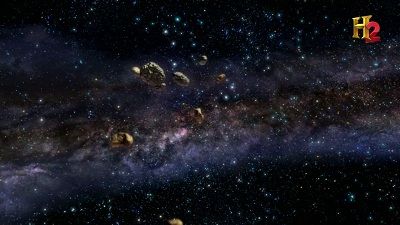
#25 - Our Place in the Milky Way
Season 7 - Episode 3 - Aired 5/13/2012
An exploration of Earth's cosmic neighborhood. Looking beyond the borders of our solar system, what's nearby in our galaxy? How do the other objects in our local area influence life on Earth? And, how did Earth's place in the galaxy make it the perfect place for the development of advanced life?